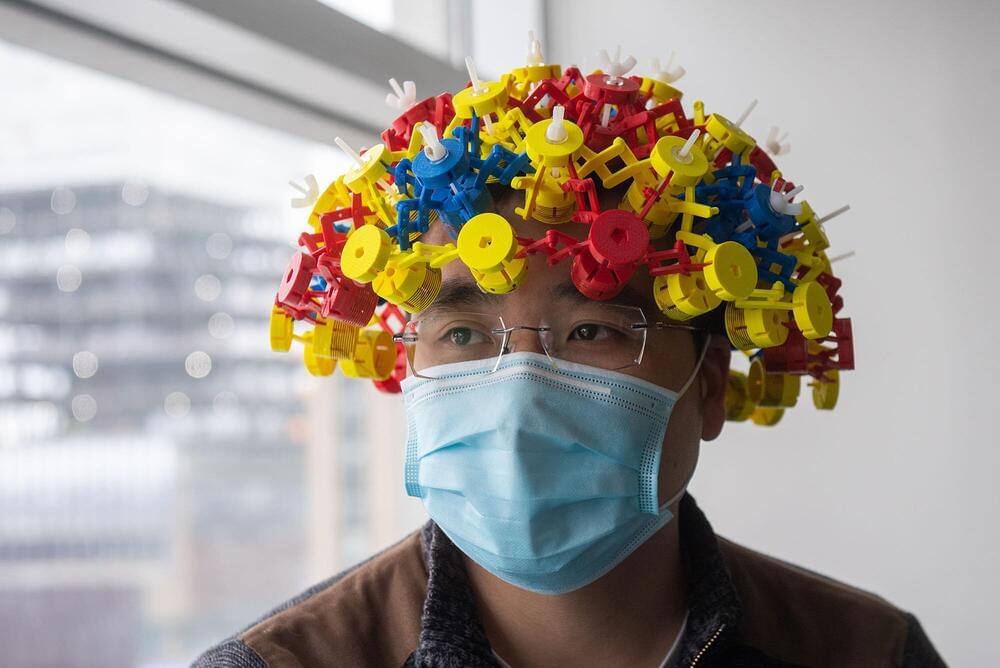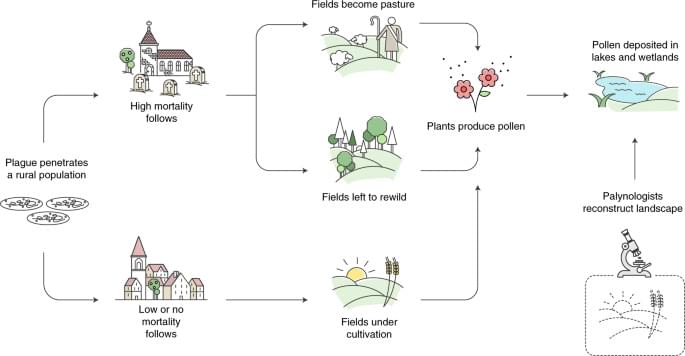Those uncanny valley in eyes effect should be changed.
These medical professionals are delivering babies from a robotic birth simulator to prepare for life-and-death situations in the hospital room.
Those uncanny valley in eyes effect should be changed.
These medical professionals are delivering babies from a robotic birth simulator to prepare for life-and-death situations in the hospital room.
Join us on Patreon!
https://www.patreon.com/MichaelLustgartenPhD
Papers referenced in the video:
Main study:
Clinical course of the longest-lived man in the world: A case report.
https://pubmed.ncbi.nlm.nih.gov/34973348/
Commonly used clinical chemistry tests as mortality predictors: Results from two large cohort studies.
https://pubmed.ncbi.nlm.nih.gov/33152050/
Predicting age by mining electronic medical records with deep learning characterizes differences between chronological and physiological age.
https://pubmed.ncbi.nlm.nih.gov/29113935/
The gamma gap predicts 4-year all-cause mortality among nonagenarians and centenarians.
https://pubmed.ncbi.nlm.nih.gov/29348636/
Implication of liver enzymes on incident cardiovascular diseases and mortality: A nationwide population-based cohort study.

US poultry producers are tightening safety measures for their flocks as disease experts warn that wild birds are likely spreading a highly lethal form of avian flu across the country.
Indiana on Wednesday reported highly pathogenic bird flu on a commercial turkey farm, leading China, South Korea and Mexico to ban poultry imports from the state. The outbreak put the US industry on edge at a time that labor shortages are fueling food inflation.
The disease is already widespread in Europe and affecting Africa, Asia and Canada, but the outbreak in Indiana, which is on a migratory bird pathway, particularly rattled U.S. producers. A devastating US bird-flu outbreak in 2015 killed nearly 50 million birds, mostly turkeys and egg-laying chickens in the Midwest.
Sixth Street Chief Science Adviser and Nobel laureate Jennifer Doudna, co-founder of the CRISPR genome editing technology 10 years ago, and Sixth Street Vice Chairman and Partner R. Martin Chavez join Emily Chang to discuss the future of CRISPR and its potential for commercialization.

Do you have a longevity supplement stack? I do not at this time but this might help you. Interesting that Sinclair takes C60 but I heard that was not good for you. This video is annotated with many chapters.
In Part Four of our Instagram LIVE super series, @David Sinclair & I chat about molecules and supplements for longevity! Our hope is that you come away from this conversation with tangible tips and an understanding of how these types of supplements can maximize longevity.
In Dr. David Sinclair’s fourth Lifespan Podcast episode, he narrows in on drugs and supplements that have been reported to combat aspects of aging…sharing the latest experimental and clinical data for NAD boosters, resveratrol, fisetin, quercetin, rapamycin, spermidine, metformin, and berberine. Given the interest, a special focus is placed on the NAD precursors nicotinamide riboside (NR) and nicotinamide mononucleotide (NMN).
…So how do these interventions influence aging at the molecular and physiological levels?
IN THIS IG LIVE REPLAY WE COVER:
Work remotely, work more jobs.
With the pandemic’s turbocharged acceleration of remote work options, many employees have sought to capitalize on the lack of personal supervision by secretly working two (or more) full-time jobs at once. But while there’s more money to be made, the strategy brings with it significant tradeoffs, namely mental health.
#Jobs #FutureofWork #BloombergQuicktake.
“The Future of Work” explores how work has changed during the Covid-19 pandemic, and which of these changes are likely here to stay — looking at office spaces, the shift in work culture, managers, & their employees from both a macro & micro level. Check out the rest of the series here: https://youtube.com/playlist?list=PLqq4LnWs3olXfYle__avndejcvzm-hDGA
——-
Like this video? Subscribe: https://www.youtube.com/Bloomberg?sub_confirmation=1
Become a Quicktake Member for exclusive perks: https://www.youtube.com/bloomberg/join.
QuickTake Originals is Bloomberg’s official premium video channel. We bring you insights and analysis from business, science, and technology experts who are shaping our future. We’re home to Hello World, Giant Leap, Storylines, and the series powering CityLab, Bloomberg Businessweek, Bloomberg Green, and much more.

It may look like a bizarre bike helmet, or a piece of equipment found in Doc Brown’s lab in Back to the Future, yet this gadget made of plastic and copper wire is a technological breakthrough with the potential to revolutionize medical imaging. Despite its playful look, the device is actually a metamaterial, packing in a ton of physics, engineering, and mathematical know-how.
It was developed by Xin Zhang, a College of Engineering professor of mechanical engineering, and her team of scientists at BU’s Photonics Center. They’re experts in metamaterials, a type of engineered structure created from small unit cells that might be unspectacular alone, but when grouped together in a precise way, get new superpowers not found in nature. Metamaterials, for instance, can bend, absorb, or manipulate waves—such as electromagnetic waves, sound waves, or radio waves. Each unit cell, also called a resonator, is typically arranged in a repeating pattern in rows and columns; they can be designed in different sizes and shapes, and placed at different orientations, depending on which waves they’re designed to influence.
Metamaterials can have many novel functions. Zhang, who is also a professor of electrical and computer engineering, biomedical engineering, and materials science and engineering, has designed an acoustic metamaterial that blocks sound without stopping airflow (imagine quieter jet engines and air conditioners) and a magnetic metamaterial that can improve the quality of magnetic resonance imaging (MRI) machines used for medical diagnosis.

Historical accounts of the mortality outcomes of the Black Death plague pandemic are variable across Europe, with much higher death tolls suggested in some areas than others. Here the authors use a ‘big data palaeoecology’ approach to show that land use change following the pandemic was spatially variable across Europe, confirming heterogeneous responses with empirical data.
Prof Bjoern Schumacher, Director of The Institute for Genome Stability in Ageing and Diseases at The University of Cologne, shortly explains the reasons and the benefits healthcare systems will attain by shifting their focus from treating each individual age related diseases in the elderly into treating aging as a disease.
To watch his entire intervention during a webinar organized by Brian Kennedy from the National University of Singapore (NUS), clic here: https://youtu.be/I4Kqp3xRiuw